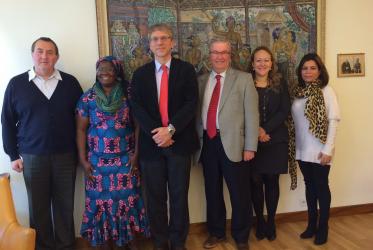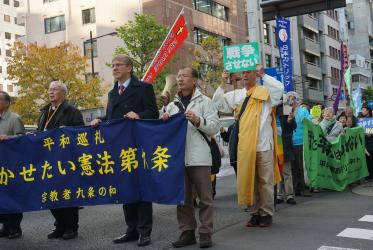Displaying 2761 - 2780 of 3390
07 January 2015
Leaders envision stronger youth engagement
17 December 2014
Momentum builds for ban on nuclear weapons
16 December 2014
Advent protests in New York City
16 December 2014
Water network develops a theological framework for water justice
12 December 2014
WCC launches global ecumenical network for advocacy for just peace
09 December 2014
WCC advisory group to promote gender justice
05 December 2014
Marianne Ejdersten appointed as WCC director for Communication
03 December 2014
Christians are called to be peacemakers and to build just peace
02 December 2014
Pilgrimage of justice and peace gives vision for WCC programmes
22 November 2014
Apply now: Academic courses at Ecumenical Institute in Bossey
13 November 2014
Nathan Söderblom opened a new chapter in history of churches
10 November 2014
Reflections on the destruction of the Armenian church in Deir Zor
05 November 2014















